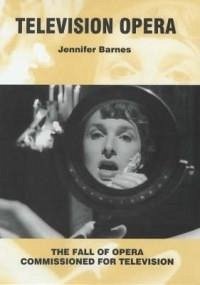Jennifer Barnes is Assistant Principal and Dean of Studies at Trinity College of Music, London. From its beginnings, television has relied on music to signal its message to the broadest market, and opera was a significant part of that plan. But, whereas in opera the role of the composer is paramount and his vision provides the driving force, in opera commissioned for television there are other priorities, both practical and artistic. Over the decades, conflict of expectations, methods and authority have influenced the production of many television operas. To chart these changes, this work examines three, commissioned at twenty-year intervals - Menotti's "Amahl and the Night Visitors", Britten's "Owen Wingrave" and Barry's "Triumph of Beauty and Deceit". Over fifty operas have been commissioned for television since the early 1950s. Examining changes in television techniques, Jennifer Barnes considers their impact on the role of the composer and questions whether television, in its rapid evolution, has abandoned early indigenous production methods, and with that its secrets of writing and producing opera for television.
Hinweis: Dieser Artikel kann nur an eine deutsche Lieferadresse ausgeliefert werden.
Hinweis: Dieser Artikel kann nur an eine deutsche Lieferadresse ausgeliefert werden.








